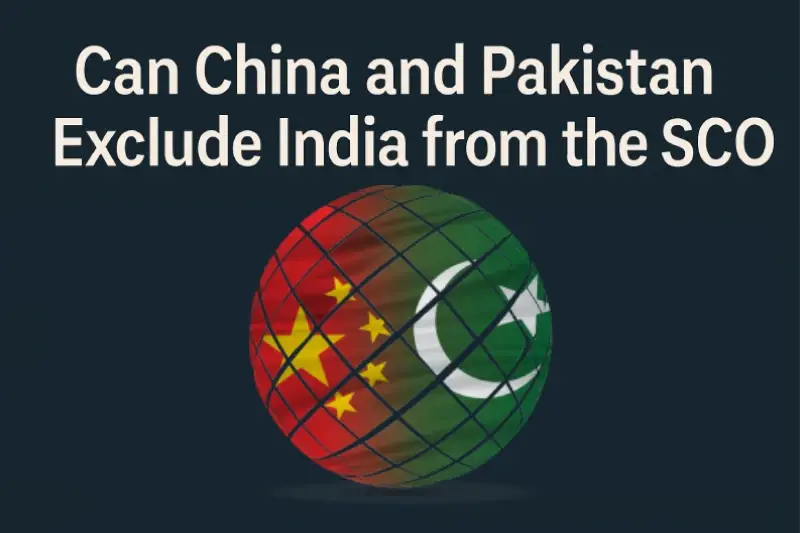Can China and Pakistan Exclude India from the SCO?
The Shanghai Cooperation Organisation (SCO) is a Eurasian political and economic union that was established in 2001. Its founding members include China, Russia, Kazakhstan, Kyrgyzstan, Tajikistan, and Uzbekistan. India and Pakistan joined the SCO in 2017, marking a significant expansion in its geopolitical influence. However, ongoing tensions including regional disputes, border clashes with China and Pakistan, and the Kashmir conflict have raised serious concerns. One such concern is: Can China and Pakistan work together to exclude India from the SCO?
The SCO framework is based on consensus-building and equality among member states. According to the SCO Charter, which was signed in 2002, all decisions within the organization must be made by consensus, without the dominance of any single member. This means that no one or two states, such as China and Pakistan, can unilaterally remove any member state, including India. Any such removal would require the agreement of all member states including Russia, which has historically maintained strong relations with India.In addition, the SCO is not a military alliance like NATO. Its primary focus is on counter-terrorism, economic cooperation, regional connectivity, and cultural exchange. Membership criteria are not clearly defined in the SCO Charter or in its official documents, and this ambiguity makes any attempt to expel a member legally questionable
From a geopolitical perspective, China and Pakistan share a close strategic partnership. They often align on regional issues, especially those involving India, as seen in forums like the United Nations and the Organisation of Islamic Cooperation (OIC). China views the SCO as a platform to expand its influence in Central Asia and to counterbalance Western-led alliances.
Despite tensions with China and Pakistan, India plays a significant role in the SCO. It contributes as one of the world’s largest markets and adds weight to regional decision-making. Excluding India would damage the organization’s credibility as a platform for multilateral dialogue and cooperationRussia, a key founding member of the SCO, values India’s presence as a counterbalance to growing Chinese influence in Central Asia. Russia does not support any move to isolate India and often acts as a neutral balancer within the SCO to prevent any one country from dominating the organization.
North Korea Reiterates Support for Russia’s Invasion of Ukraine
Even if China and Pakistan somehow convinced a few other SCO members to support removing India (which is highly unlikely), such a move would lead to serious consequences. The SCO’s legitimacy would suffer, making it appear biased and politically motivated rather than neutral and fair. This would harm its reputation and weaken its ability to solve regional issues.
Additionally, it could push India closer to Western alliances such as the Quad (Quadrilateral Security Dialogue), resulting in greater polarization in the Indo-Pacific region. Excluding India might also increase instability in South Asia — a region already affected by nuclear rivalries, cross-border terrorism, violence, and strategic mistrust.
Furthermore, India’s participation in the SCO strengthens the organization’s goals of regional connectivity, trade, and energy cooperation. As one of the fastest-growing major economies, India offers significant economic opportunities for Central Asian states and promotes joint development projects such as the International North-South Transport Corridor (INSTC) and the Chabahar port. Excluding India would not only undermine the SCO’s image as an inclusive multilateral platform but also reduce its ability to foster meaningful economic integration across the Eurasian region. Keeping India engaged ensures a more balanced and cooperative regional order, which is essential for the SCO’s long-term success.
Keep connected with us at Facebook, Twitter, YouTube, Instagram & TikTok for the latest defense happening around the globe.
Discover more from International Defence Analysis
Subscribe to get the latest posts sent to your email.













